
Social Leadership: an idea worthy of attention
One of the ideas that caught my attention was the idea of Social Leadership. 'The Social Age requires Social Leaders: leaders who work within and alongside communities to create meaning, to deliver.'1
All leadership is social, its "a process of social influence in which one person enlists the aid and support of others in the accomplishment of a common task" 2 There seem to be two senses in which the term social leadership is used. '[it] has been used in a technical sense by researchers for over fifty years. More recently it is being used by community organizations and others to describe a much broader perspective on people-centred activities aimed at creating a better world. Beyond this, I would suggest that it has great potential for use within the technical vocabulary of leadership studies, as a framework for the construction and evaluation of more comprehensive ways of understanding what it means to lead.' 3
My sense is that Julian is using the term as part of the conceptual vocabulary of what it means to lead in the Social Age whereas I believe that social leadership needs to be connected to a social purpose. For example, social leaders are "leaders with a social purpose who seek to change some aspect of the[ir] world"4 or 'social leadership means to devote one’s life and talents to improving society'5. Social leadership 'must also take into account human values, both ethical and aesthetic. Ethical values are usually expressed in terms of what we think is right, or good......Aesthetic values refer to such concepts as harmony and beauty, elements that are essential to our perception and appreciation of the world around us...'3
My role as founder and leader of Lifewide Education Community Interest Company is consistent with conceptions of social leadership that are motivated by social purpose. I have ideas and a vision for how our educational system could be improved and have tried to enact that vision through my work as an educator and social leader. I am seeking to influence others by sharing my ideas and attracting other people who share my values and beliefs and I am trying to create the conditions where people who would like to develop and apply these ideas can belong to a community of shared interest. Our purpose as an organisation is to serve our community of self-identified people who are interested in the idea of incorporating a lifewide learning perspective in formal education.
The NET Model of Social Leadership
Figure 1 Julian Stodd's NET Model of Social Leadership1
Julian's NET model of social leadership is concerned with the WHAT and HOW of social leaders but not so much the WHY? His NET model of social leadership contains three core concepts Narrative, Engagement and Technology and nine components - Curation, Storytelling, Sharing, Community, Reputation, Authority, Collaboration, Social Capital and Co-creation. While I agree that all these components (and more) are associated with social leadership I am not clear why the core components have been selected. The NET model does not so much provide me with the answer to my question, 'what does social leadership mean to me?' rather it provides me with a useful aid to thinking about the idea of social leadership in the context of my role as founder and leader of Lifewide Education.
Importance of social purpose
I have a 'social purpose' and I am 'seek[ing] to change some aspect of the world' and the reason I established the Lifewide Education Community Interest Company was to create an organisation to help me engage 'the world' to try to raise awareness of the idea of lifewide learning and personal development and convince people and institutions (particularly universities and colleges) of the value of a lifewide approach to encouraging, supporting and recognising learning in higher education.
Social leadership without a purpose is of little social value. Social purpose and value which inspire a vision of a better society, need to be at the heart of any model of social leadership. Without these there is no compelling reason for people to do anything different or to commit to being part of something they believe will lead to change that is consistent with their ideals for the society they want to live in.
My representation of social leadership. All this stuff goes on, some of it will be planned and co-ordinated but much of it will be emergent and improvised. The social leader creates new ecologies for learning, developing and achieving the social change he desires. Comments and suggestions for development welcome.
1 Social leadership is about 'leading'. It's about envisioning and articulating a sense of purpose, direction and more concrete goals, then creating and working with others to co-create the conditions that encourage movement towards these goals. It involves all the things you associate with leadership like planning, securing and managing resources, building capacity to do things, contributing time and effort to make things happen, monitoring and evaluating progress and making self-accountable to the community. Actions speak louder than words - It involves modelling one's own behaviour in ways that demonstrate you believe in what you are doing. Reputation and authority are personal rather than organisational and they have to be earned through things that a social leader does.
2 Social leadership is about 'communicating'. Social leaders have to be communicators, how else will people know what they stand for and understand what they want to achieve? They have to turn abstract ideas into stories that people can understand and care about. Communication is about trying to influence the way people think and see the world and offering alternatives to what currently exists. Social leadership is about creating and co-creating narratives that explain the proposition for social change and inspire and compel people to get involved. These forms of communication facilitate development of relationships connecting people to the purposes, values, ideas and challenges that underlie the social enterprise. Communication takes many forms - written, spoken, visual and may involve many different media using many different tools.
The internet and technological tools of the Social Age provide many aids to this process and enable social leaders to reach out to people in ways that would not have been possible even a few years ago. As Julian Stodd points out the social media we now have access to enable 'social collaboration and reach [and] socially collaborative conversations, about the co-creation of meaning in communities, about supporting engagement and development in these communities and about collaborating, to achieve more than we ever can alone'1 They help social leaders accomplish the social changes they are seeking.
3 Social leadership is about 'engaging' people: Having identified a purpose or cause that will connect to what people will believe and value the role of the social leader is to try to involve people in bringing about social change. This is about the ways and means or capabilities that leaders and their teams can bring to the task and these will reflect the nature of the proposition and the cultural practices of the domain. Engagement may involve such things as distributing information, holding meetings and conferences, creating on-line forums and blogs, conducting inquiries, surveys and other research, sharing practices, collaborations, co-creative activities, campaigns and other forms of collective actions, utilising tools and technologies of the Social Age. The social leader is also responsible for ensuring that the products and results of such activity are curated and utilised in the further pursuit of social goals.
Through these processes, relationships and activities people who are interested begin to form community - at one level this may simply be declaration of interest in an idea and a willingness to receive information and stay connected and informed. At another level it might involve advocacy, campaigning and the creation of new practices. Eventually, if sufficient people buy into the ideas and ideals, social change may occur.
4 Social leadership is about developing ideas so they can be turned into new social practices: social leaders take ideas and purposes that motivate them and develop them, with the help of others, so they can be applied more easily. Development means a progression or movement from a simpler or lower to a more advanced, mature, or complex form or stage. Development is a process to achieve certain goals in certain ways or a trajectory along which certain things change or are accomplished. It is the process that enables everyone to change themselves and the social worlds they inhabit. It is the process through which new things - material or virtual objects, social practices and performances are brought into existence or changed.
Social leaders share their thoughts and ideas and encourage others to criticise or offer different perspectives. They seek to underpin their ideas with research and enquiry and involve themselves and others in developing evidence to support their propositions. They connect to authorities that are willing to lend their support and they collaborate with people who are willing to show how ideas might be applied. They experiment with their own practices and evaluate the results.The process of developing and applying ideas with others leads to the co-creation of new meanings and deeper shared understandings. It is through development that people begin to see the world differently and they begin to embody this change and eventually this is how social change is accomplished.
5 Social leadership is about creating ecologies for changing existing eco--social systems: Inspired by their vision for a better society, social leaders create new ecologies comprising their processes and contexts, relationships, networks, interactions, tools, technologies and activities that provide them with opportunities and resources for learning, developing and achieving something of social value (Figure 3). As they embrace and include people who share their spirit, values and beliefs into their learning ecology they establish new eco-social systems for change.
My representation of a learning ecology. Social leaders are creators of new ecologies and eco-social systems 6
• the different contexts and communities in which individuals co-exist in relative stability and inter-dependence
• a set of overlapping but distinct spaces/places each with its own rules, affordances and constraints
• a self-regulating system that consumes, recycles [and creates] resources
• an organisation in which change occurs over time, modifying individuals and inter-relations, without destroying the overall
cohesion and balance – ie the ecosystem is both adaptive and resilient to change
A social leader creates new senses of what is right and what should be in existing ecosocial systems and helps create the conditions for their adaptation. Their significance is to 'modify... individuals and inter-relations, without destroying the overall cohesion and balance' of the ecosystem.
One final thought, implicit to the pursuit of social change in the ways I have described above, is the notion of social capital. 'Effective social leaders have high social capital and develop it in others. This generosity and humility reinforces reputation and authority'1 It is not something I would claim for myself but social leaders need self-belief and self-efficacy to sustain involvement in their social project.
Invitation
These thoughts have been inspired by Julian Stodd's thoughtful blog on social leadership. I welcome views and further perspectives on these ideas. [email protected]
Sources of ideas
1 Stodd, J. articles on Social Leadership http://julianstodd.wordpress.com/?s=social+leadership
2 Chemers M. (1997) An integrative theory of leadership. Lawrence Erlbaum Associates, Publishers
3 Campbell, R. A. (2012) http://ezinearticles.com/?What-Is-Social-Leadership?&id=7155665
4 Clore Social Leadership Programme http://www.cloresocialleadership.org.uk/about.aspx
5 http://www.thesocialleader.com/social-leadership/
6 Jackson, N. J. (2013) The Concept of Learning Ecologies, in N. J. Jackson and G.B. Cooper (eds) Lifewide Learning, Education and Personal Development E-book Chapter A5 available on-line at http://www.lifewideebook.co.uk/conceptual.html
7 Lemke, J. (2000) Across the Scales of Time: Artifacts, Activities, and Meanings in Ecosocial . Mind, Culture and Activity 7 (4), 273–290 available on-line at http://www.jaylemke.com/storage/Scales-of-time-MCA2000.pdf
What does social leadership mean to me?
| social_leadership_what_does_it_mean_to_me.pdf |

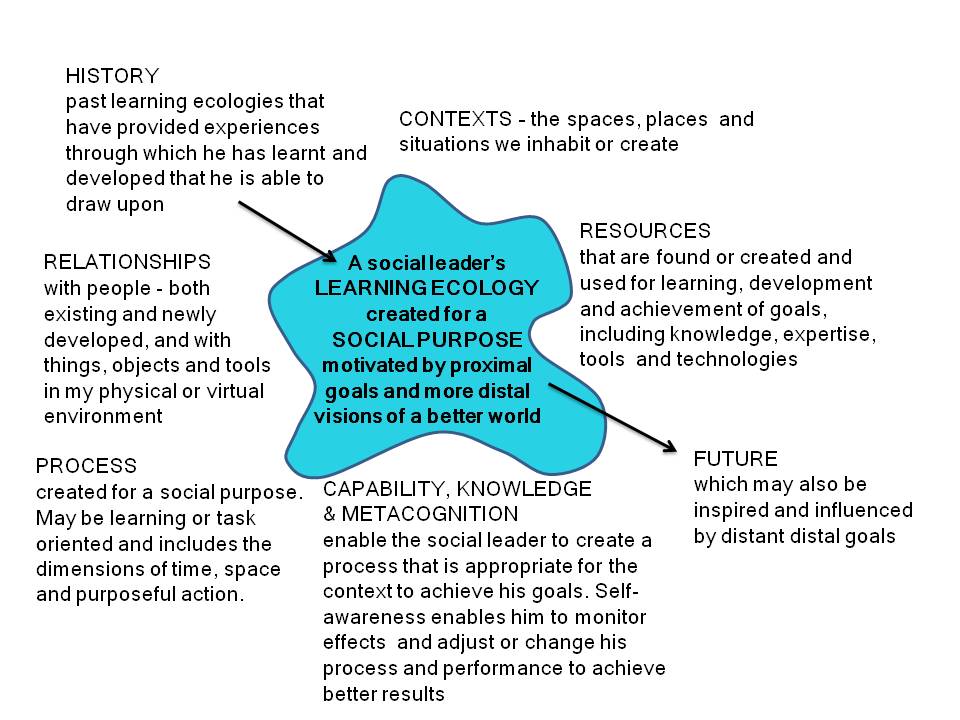
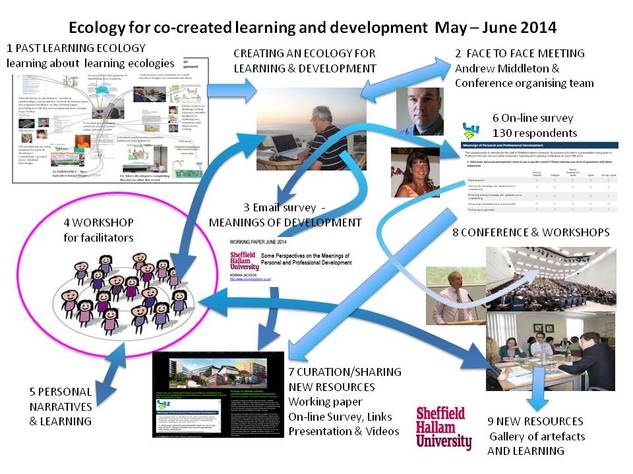
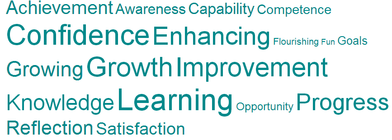
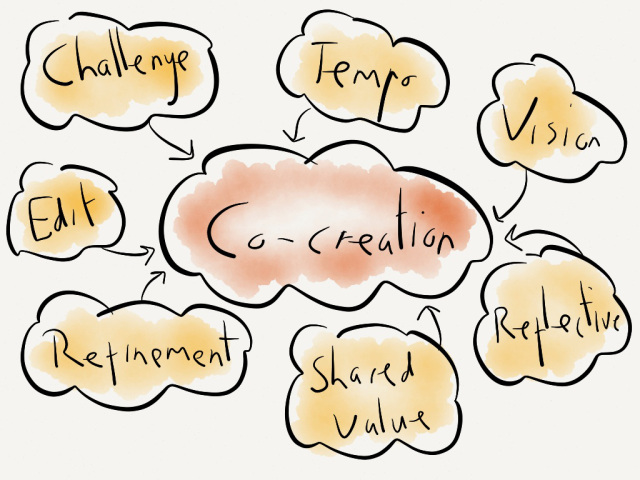
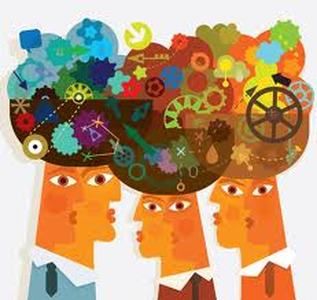
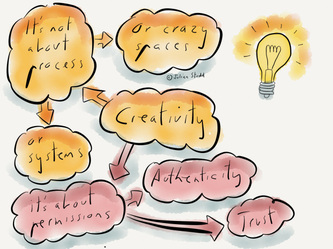
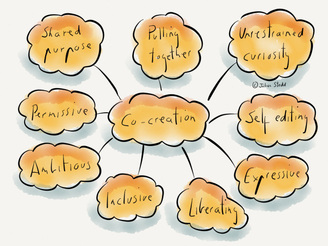

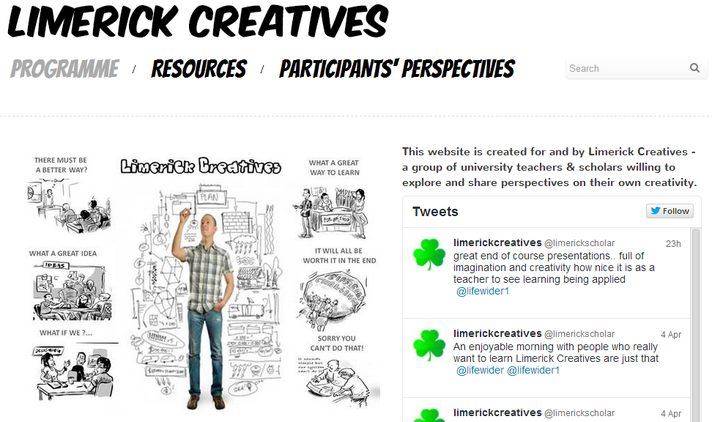





 RSS Feed
RSS Feed